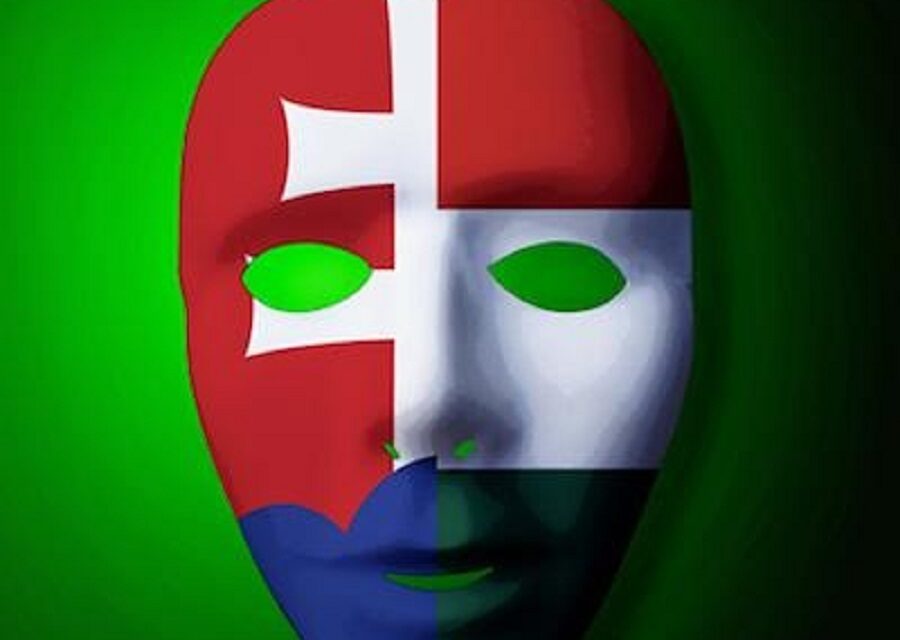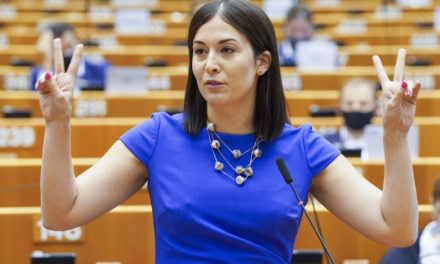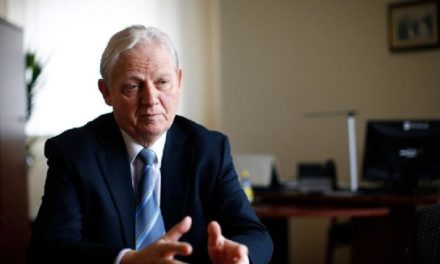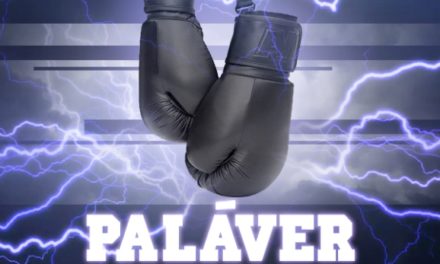A cunning fear governs the Hungarians in the highlands. Still, thirty years after the establishment of Slovakia and twenty years after joining the EU. The Slovak state would have a dogged duty to finally admit that the presence of native Hungarians does not conflict with the interests of Slovakia. And for four years there will be no one in the Slovak legislature who can bring this up.
We Slovaks are longing, said Aunt Annus in a typical Palác dialect. Aunt Annus lived in Rapovce, in (Czechoslovakia). Throughout history, Rapovce was a pure Hungarian village, called Rapp. The village was depopulated at the end of the Turkish era, then repopulated with Hungarians. The Trianon border was drawn at the border of the village, thus Rapp became Rapovce. Aunt Annus were Hungarians from the other side, she grew up in Ipolytarnóc, then married a railroad worker from Rappi. These were the times when Rapp returned to Hungary. The Annuskas lived happily, the railway provided a house, grounds, and livelihood, and their husband was not taken to the war either. They went next door, to his native village, where his parents and all three of his siblings lived.
At one point I had to confess my identity. We are Hungarians, he said lightly, but he said it at the wrong time, jeopardizing his railway job, his hoped-for pension, medical care, in other words, his entire existence.
This was already after the war, and they did not feel much of the horrors in this protected Hungarian village near Ipoly. They were simple people, they knew little about the world. They were not resettled in cattle cars to replace the Germans driven from the Sudetenland, but the next time he was asked if he was now Slovak or Hungarian,
he immediately snapped: we Slovaks want. In Hungarian, because he didn't speak the lake language.
That's how he became Slovak, adding the -ova to his Hungarian name so that his name also showed where he belonged. This is how many Hungarians suddenly became Slovaks, and the process also had a name: reslovakization, i.e. according to the Czechoslovak communist regime, they returned to their original Slovak origin.
I like walking in cemeteries because the headstones speak of the past. In Rapp's cemetery in the 1980s, there were almost exclusively Hungarian tombstones, and the surname and first name, and even the order in most cases, indicated the nationality of the villagers. Today, this has also been changed, Slovak gravestones are in place of the old Hungarian graves. I don't know what language head tree indicates Aunt Annus, since she became Slovak, denying her real ancestors.
Many tricks have been invented in the last hundred years to destroy the native Hungarian population,
in other words, in order to create a Slavic nation-state, and it was enacted into law. The 33rd presidential decree of Eduárd Benes deprived the Hungarians of the highlands of their citizenship, pensions, and jobs. He banned the use of the Hungarian language in public life, excluded Hungarian students from universities, dissolved Hungarian cultural associations, and froze Hungarians' bank deposits. Their confiscated lands and houses were populated with Czechs and Slovaks. The Germans, burdened with collective guilt, were expelled, and the Hungarians were made stateless in their own thousand-year-old land.
There was reslovakization pressure, which put the more cowardly or those who wanted to live on the (Czecho)Slovak side, there was displacement by cattle wagons, there was the theft of property and existence, and then came the population change.
With the latter, nearly ninety thousand Hungarians were smuggled into the truncated Hungary. Then there was the transformation of administrative boundaries and constituencies. The electoral districts drawn in the north-south direction changed the nationalities ratios, diluting the Hungarian-inhabited regions with Slovaks. (Today, the Slovak legislature is planning something similar, its name is self-government reform.) One could list the attempts to create a (Czechoslovakian) Slavic nation-state, but the most bizarre part of the story is when the anti-nationalist communists destroyed basic human rights, schools, churches, the Hungarian the possibility of learning and communicating in their mother tongue was taken away from Hungarians.
A cunning fear governs the Hungarians in the highlands.
Still, thirty years after the establishment of Slovakia and twenty years after joining the EU. After all, some of the Benes decrees are still part of Slovakia's legal order, although this does not raise rule of law concerns in Brussels. Looking at the politicians sitting in the European Parliament, I'm not even surprised. They have probably never heard of the collective disenfranchisement of Germans and Hungarians, which is contrary to the Charter of Fundamental Rights of the European Union. They have no idea that this is the real disenfranchisement, not the problems of LGBTQ communities. If you think about it, the almost half a million Hungarians in the Highlands still live as collective criminals in the Highlands for the dismemberment of Czechoslovakia in 1938 (But no one in the world is guilty of the dismemberment of the thousand-year-old Hungary at Trianon. We can always forgive everything.)
The Slovak state would have a dogged duty to finally admit that the presence of native Hungarians does not conflict with the interests of Slovakia. And for four years there will be no one in the Slovak legislature who can bring this up.
In a hundred years, the number of Hungarians in the Highlands has halved. If we were to put natural reproduction into a mathematical formula, this weight loss is much greater. Tragically big. The Hungarians of the highlands have been broken, crippled and deceived so many times that they no longer believe and trust anyone. Let's not try to tell them what and how they should have done it differently. Those who did not live as a minority, did not experience injustice, who were not persecuted for being Hungarian, should not pass judgment on those who got out of it thoroughly.
It's hard to get up from here and start again. The world also dictates a different trend.
Go away, stay there, if you don't like it, try your luck elsewhere! Don't serve the community, but fulfill yourself! What is the mother tongue for when no one but us understands it? What does the homeland, the Hungarian countryside, mean when everything has a Slovak name? When the Slovak nationalists beat you if you speak Hungarian, they tear off the Hungarian inscription and forbid the singing of our National Anthem. When the Hungarian city that has been crowned for four hundred years, Bratislava, nothing promotes the memory of the Hungarians.
Recently, in Cluj, the leaders of the four historical churches, the Reformed, Catholic, Unitarian and Lutheran churches, discussed the results of the Romanian census. Believers are dwindling everywhere, the number of Hungarians is also dwindling, just as it reached one million people. The Transylvanian church leaders believe that they must do everything to increase their congregations, but they unanimously believe that their task is much more important than that of keeping Hungarians in Transylvania. Representing the interests of Hungarians overrides the interests of church communities. We must unite and help each other, the bishops said. And the cooperation has already started.
We Hungarians, if we want to stay, we cannot expect help from anyone else.
We do not belong to the big family of any people, neither the Slavs, nor the Latins, nor the Germans. We are on the road with our difference. This has always been the case throughout our history, and it will not change. The clear message of the Slovakian elections is that if we want to stay, all Hungarians must stick together, because no one else will represent the interests of Hungarians except us.
The author is a historian
Source: Magyar Hírlap
Cover image: Illustration / Source: ma7.sk













